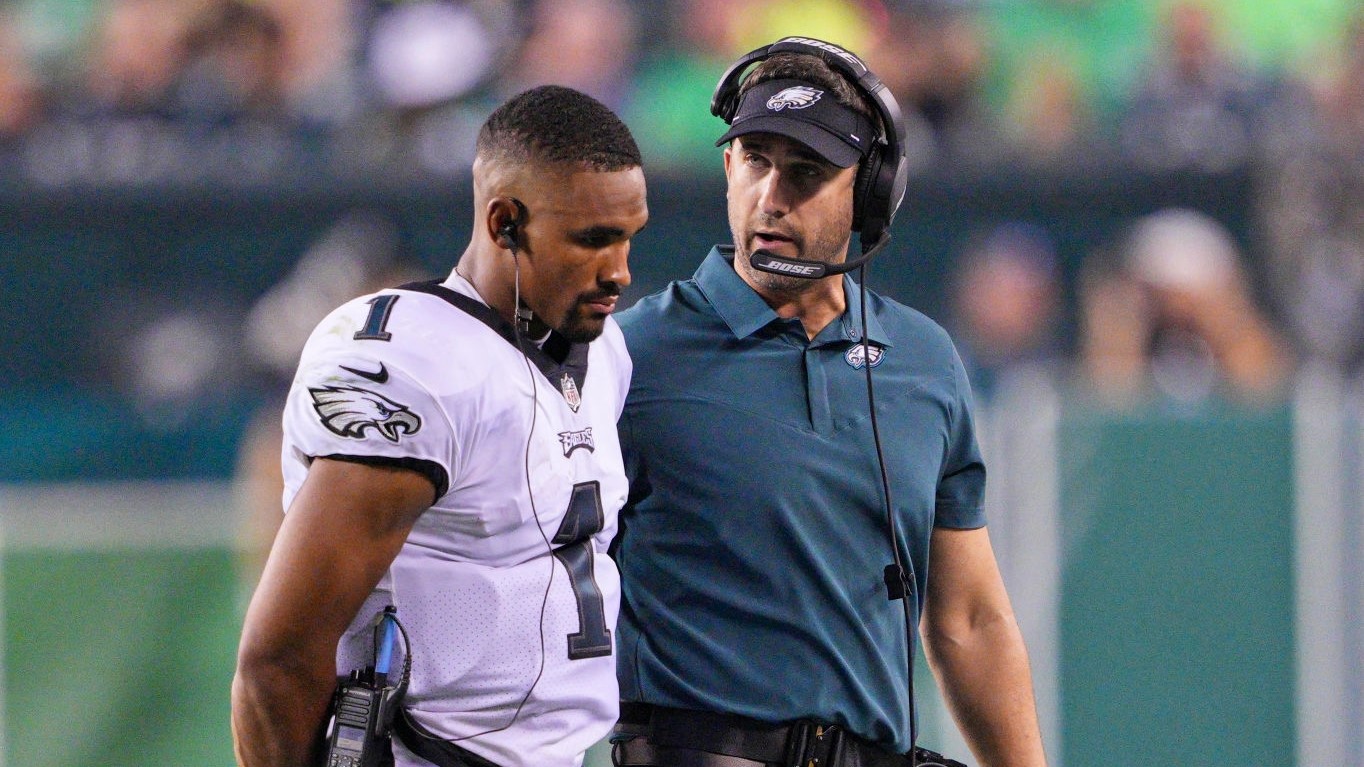Was Devon Allen cheated out of running in the hurdles final at the World Athletics Championships?
The most prominent running site in the country believes so.
In a piece on LetsRun.com written by LetsRun founder Robert Johnson, a prominent track and field voice and former coach at Cornell, and headlined, "Was Devon Allen Screwed? There’s At Least A 99.9% Chance That He Was," Johnson questioned the validity of the reaction-time measurements taken by the timing equipment being used at the World Championships at Oregon’s Hayward Field.
Stay in the game with the latest updates on your beloved Philadelphia sports teams! Sign up here for our All Access Daily newsletter.
Johnson presented several pieces of independent research that seem to overwhelmingly indicate that there’s an enormous statistical chance Allen should not have been disqualified.
Allen, who is due to report to Eagles training camp next week, was disqualified from the 110-meter hurdles final Sunday for a false start that was imperceptible to the human eye but deemed by the timing system – which measures the time between the gun and the runners’ feet pressing down on sensors in the starting blocks – as 1-1,000th of a second faster than the allowable limit.
Allen, a former University of Oregon track and football star and two-time Olympic finalist, is the 3rd-fastest hurdler in world history with his 12.84 in New York last month.
Johnson said he spoke with Allen’s agent, Pauyl Doyle, after the DQ, and Doyle said he believed the reaction times being measured during the meet were faster in general than usual.
NFL
Turns out that’s true.
In his piece, Johnson quoted a LetsRun message board poster who researched the average reaction times in the sprint events that had been held through Sunday – the men’s and women’s 100-meter dashes and the men’s hurdles – and then compared them to the average reaction times in the same events in the last 12 international track competitions – the last six Olympics and the last six World Championships, all of which used the exact same timing system.
What that poster determined was that the measured average reaction times in all three races in 2022 were considerably faster than in any other year since 2003, when reaction times were first listed in the results.
The combined average of all the races this year was .133 seconds. The other years ranged from .144 to .165. The average time was significantly lower than any previous year in each event that was measured.
And in the hurdles, the average was .129, and the lowest previous average was .146 at the 2016 Olympics in Tokyo. That’s a massive difference.
The odds that all three events in 2022 would randomly have the quickest reaction time out of 13 different competitions equals 1 in 13 cubed, or 1 in 2,197, which is 0.00046 percent.
Which as Johnson pointed out means there’s a statistical 99.95 chance something in the timing system was not operating the same way as in previous meets.
Certainly the reaction time of human beings hasn’t suddenly magically improved by 8 percent since last year’s Olympics.
All the reaction times from those earlier meets are listed in the official 898-page World Athletics 2022 media guide that is available at no charge to the public here.
Meanwhile, a verified Twitter user and track coach, P.J. Vazel, whose bio says he’s coached multiple Olympic sprinters, said he researched the number of sprinters and hurdlers whose reaction time was measured at .115 or faster in the last six major international championships – Worlds and Olympics.
His research shows 25 of the 30 reaction times measured at .115 or faster in the 100 and hurdles came this year.
Obviously, if the timing system's measurements were off by just a fraction of a fraction of a second, that would be the difference between Allen racing Grant Holloway and Trey Cunningham for a world championship and being disqualified.
World Athletics issued a statement saying that the equipment was “functioning as normal” for the 110-meter hurdles final.
The statement also indicated that the information produced by the computerized timing system is used to assist the starter in making a decision, which indicates that the starter may have had the jurisdiction to overrule the false start.


